How Can We End World Hunger? Travel Expert Rick Steves Visits Guatemala and Ethiopia to Explore Answers.
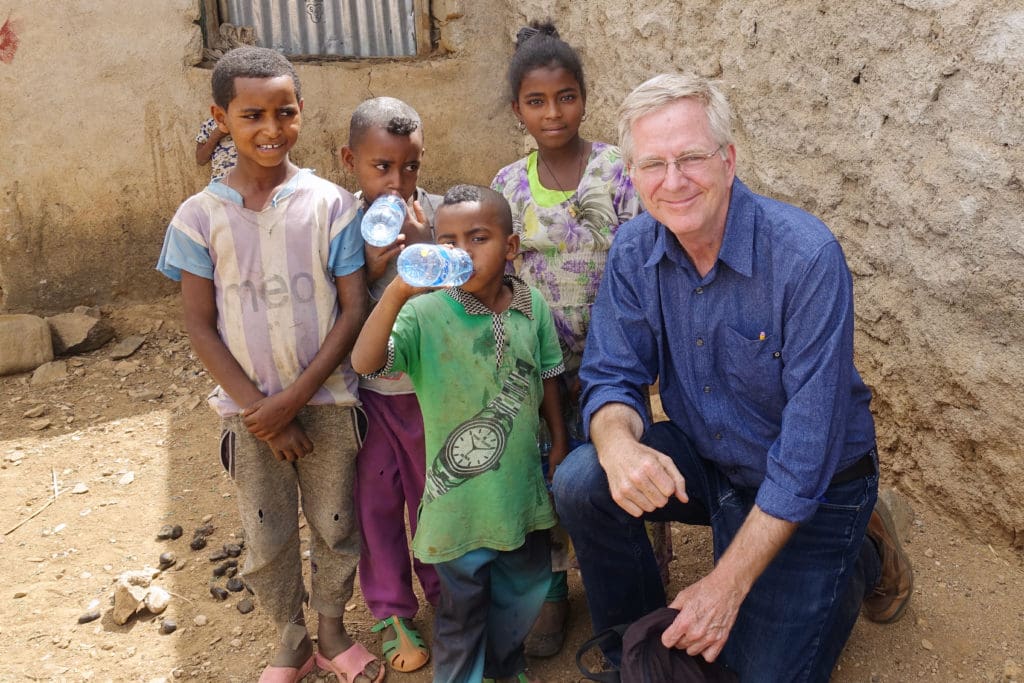
Rick Steves is no stranger to exploration. The renowned travel expert has built his career around investigating the nooks and crannies of Europe and sharing his discoveries with curious travelers. Recently, however, Rick ventured beyond Europe to explore one of the most pressing problems of our day: the problem of global hunger. He documents his journey in a new TV special, Hunger and Hope: Lessons from Ethiopia and Guatemala.
On this episode of Hacking Hunger, we caught up with Rick to discuss what this project taught him about the challenges and innovative solutions to solving global hunger and the inspiring people and organizations (including WFP) he met along the way. Discover his insights by listening to our podcast or reading our conversation below.
WFP USA: Rick, thanks so much for joining us today. I know you’re very busy. We truly appreciate you taking the time to talk to us.
Rick Steves: Happy to be with you, thanks!
WFP USA: Before we dive further into the documentary, I’m curious to know: What sparked your passion for ending global hunger in the first place? And what inspired you to produce this documentary?
Rick Steves: I think to a great extent, my travels. Ever since I was a kid, I’ve been traveling. And when you travel, you gain an empathy and understanding, I think, for the other 96 percent of humanity who live beyond our borders.
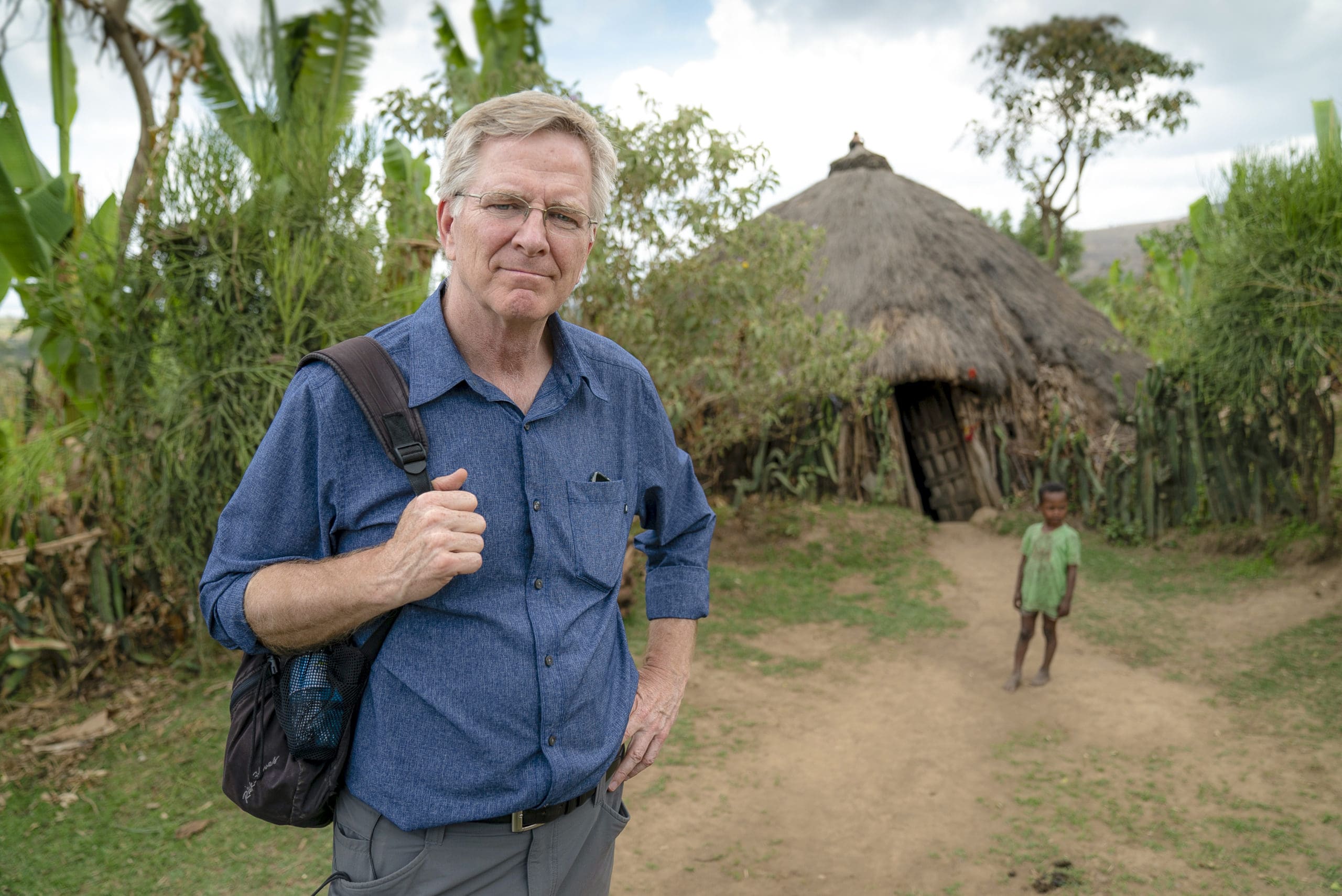
Rick in a village near Hawassa, Ethiopia.
And one thing you can’t help but notice is just this huge gap between the affluent world and the desperately poor world. Way back in the 1980s and 90s, I found myself traveling in Central America, and that’s where I learned about structural poverty – that people are poor because of structures in place. I read a few books to learn more about why people were hungry and the economics of hunger and made a video about those issues for my church. I think this experience is really what first whet my appetite for this cause.
And so, in recent years, I’ve come to have this platform on public television. I love to produce shows about important issues that relate to my travels, so I decided to produce one on extreme hunger and poverty – problems I’ve been passionate about addressing for years.
The general premise of our documentary is that about half the world lives on $5 a day. That’s tough, but what’s even tougher is that 10 percent of the world lives on $2 a day. That’s extreme poverty; that’s hopelessness and hunger. But the good news is that we can defeat them both if we get our act together.
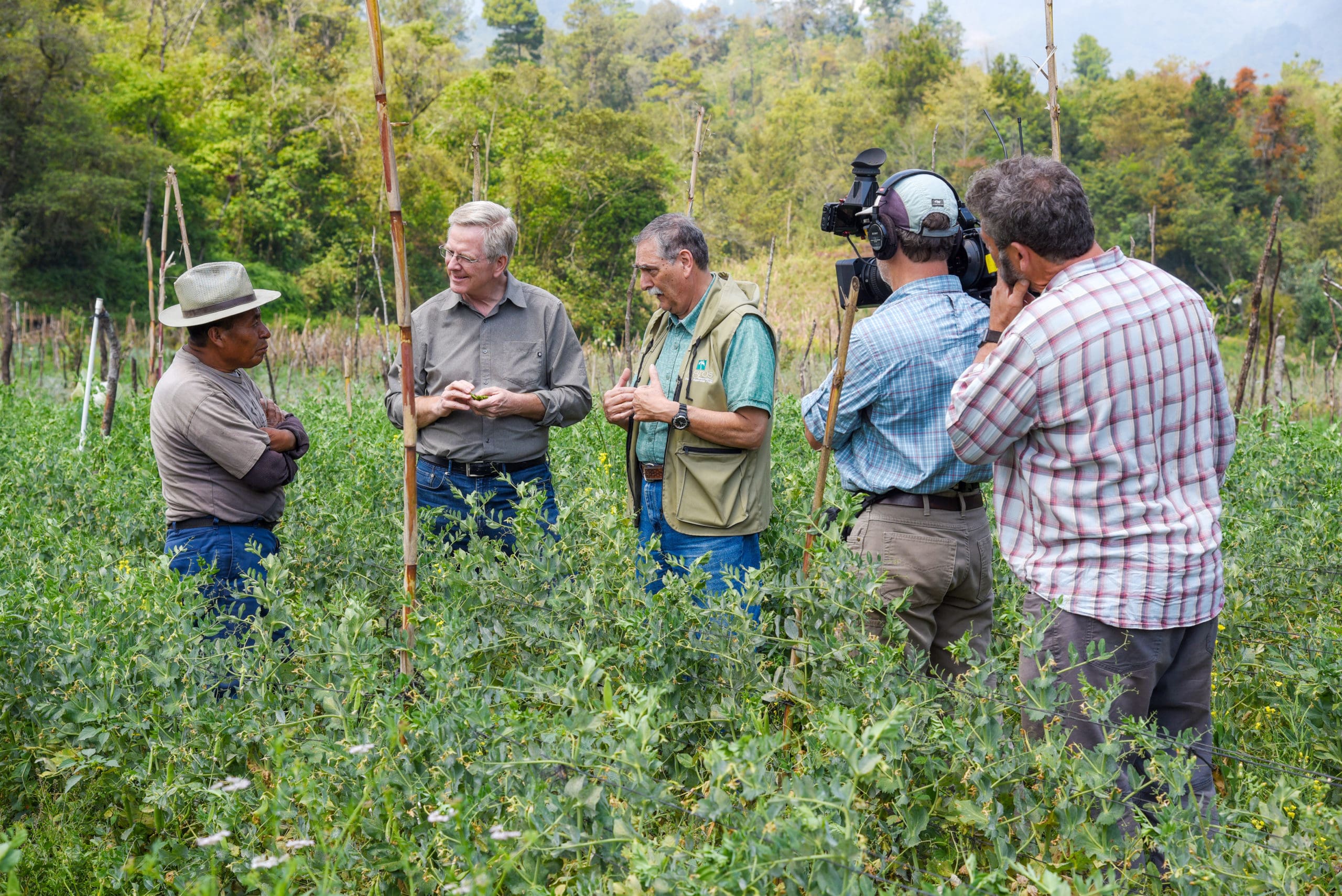
Rick and his crew with Pedro, a small-scale pea farmer in Guatemala.
And another concern I’ve had lately is that many Americans have a built-in cynicism about development aid – and maybe that’s about old-fashioned aid. But modern aid, I find, is really smart and practical and gets things done. I wanted to use my platform to show what extreme poverty is, how smart development aid works, and then get people excited about the challenge of ending it. Not necessarily because we want to love our neighbors, although that’s what motivates me, but also because it makes our world more stable and safe.
WFP USA: Well said! I want to first start with the hard stuff you learned. Through filming and researching your special, what did you learn about the biggest challenges to solving hunger and poverty today? Did you discover anything that surprised you?
Rick Steves: I think what really became clear to me as we were researching this, is what I ended up calling the three Cs: conflict, corruption and climate change. These are three huge hurdles.
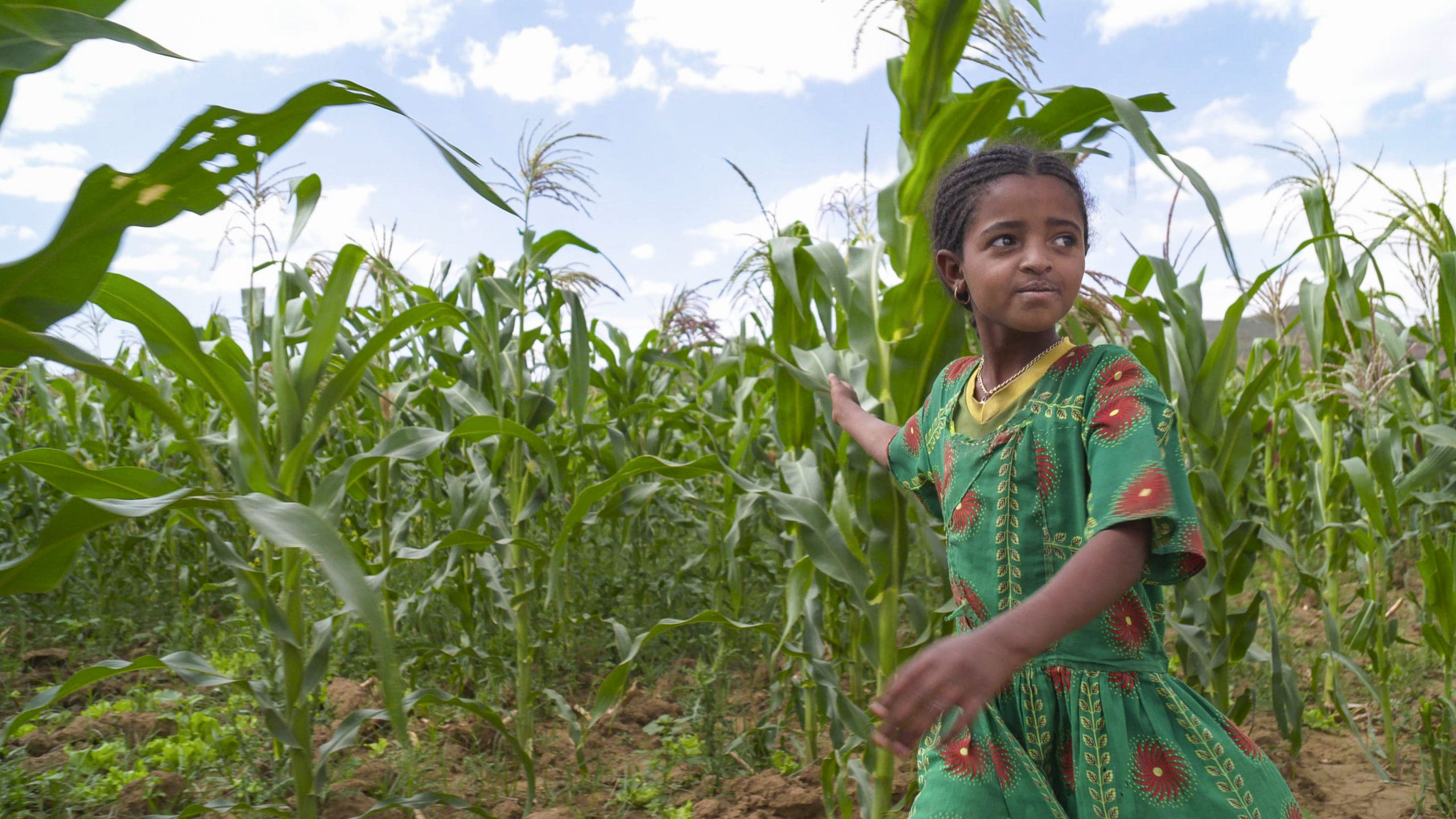
A young girl on a farm outside of Axum, Ethiopia
Conflict just upends any kind of development that’s going on. Corruption is so frustrating because a country has a massive gap between rich and poor. There are oligarchs and big landowners while 90 percent of the people in these countries don’t own land, even though they really want to. They want to be able to work hard, feed their families and become businesspeople – but corruption is a huge hurdle to that. It derails development and ends up making the rich richer and the poor poorer. And then climate change is the new player on the horizon. It makes everyone have to work a little harder to develop.
WFP USA: The challenges you mentioned – the three drivers – there are many countries around the world where you’d be able to find examples of those. Why Ethiopia and Guatemala?
Rick Steves: I wanted to have one country in each hemisphere, and I thought for an hour TV program it would be fun to bounce back and forth. And I wanted to choose countries that would be a good classroom for the points I wanted to make. I wanted to show the impact of climate change. I wanted to demonstrate micro-lending, the importance of nutrition, empowering women and water infrastructure. I wanted to show big cities with economic extremes. I wanted to show the impact of gangs and Guatemala is a good, good classroom for that.
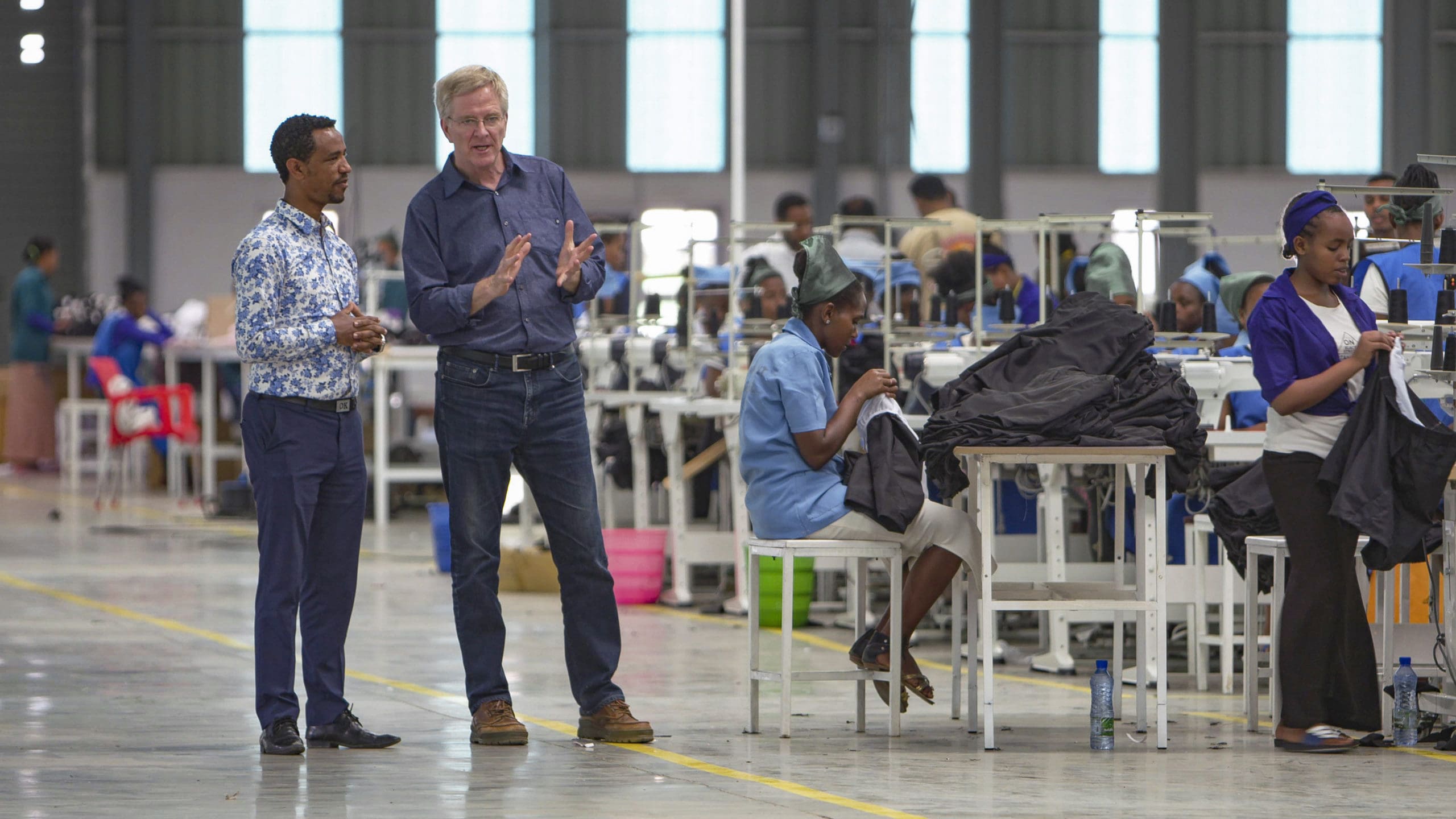
Rick learning about Ethiopia’s growing economy at the Hawassa Industrial Park
I also wanted to show a country that was making steady gains. Ethiopia’s a country of 100 million people with a positive development trend. It’s not as wealthy as Guatemala, but I think it’s come to symbolize the hope of steady development in Africa. I wanted to show a glaring gap between rich and poor and both Guatemala and Ethiopia demonstrate that.
WFP USA: Of all the people you met, was there one family that stood out to you the most? What about seeing their plight firsthand left a lasting impression on you?
Rick Steves: One group of people I was really impressed by were small-scale farmers. I think about half of humanity are small-scale farmers in developing countries, and their grandparents were generally subsistence farmers. But today’s small-scale farmers understand that they have an option to be entrepreneurs and own their land with smart agricultural techniques and education. They understand how to use their land smarter, care for their soil, and get a bigger yield and more harvests.
In Ethiopia, we visited with a man named Abedi, and we visited with a wonderful family, Diego and Catarina, in Guatemala. In both cases, their parents aspired just to be subsistence farmers–to make it through the winter and feed their kids. But both of these families are now diversifying. They are getting a much better yield. They are involved in the marketplace, whether it was, you know, selling their surplus crops to the nearby city or even exporting it to wealthier countries. Diego and Catarina were raising goats on the side and producing dairy products – some of which would feed their kids and others they would sell. And they had a brand and they were part of a co-op.
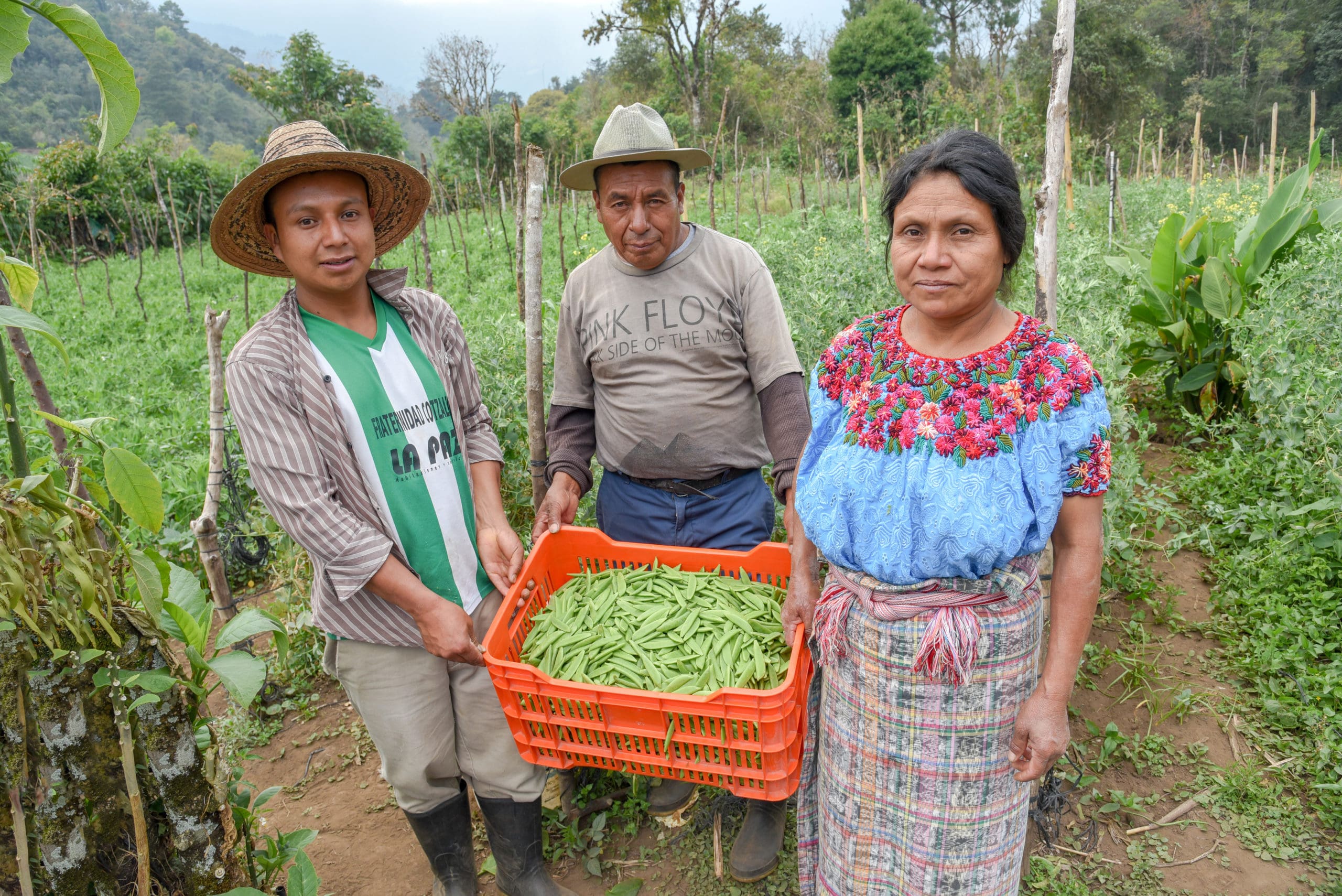
Pedro (center) is a farmer Rick met in Guatemala who, with help from an NGO, owns his land in Guatemala — and manages a profitable snap pea farm.
It was just really exciting to see people working hard and producing. And one thing I kept hearing people say was, “You know, we want to work hard, and we want to sell what we produce.” We often assume people in these situations want to migrate to richer countries, but from what I learned by visiting with them is that they’d much rather stay on their land if they can make a living there.
And I think this relates perfectly to the current political debate – the discussions we have going on in the United States today around foreign aid that taxpayers support and whether or not it’s a good investment. And from what I saw, it is. We saw the results of enlightened development aid that doesn’t make people dependent but helps them become independent. And I wish every American could have seen it for themselves. So that’s why I made the documentary: to introduce hard-working people like Abedi, Diego and Catarina to Americans and to show how American development aid is making a difference.
WFP USA: I love those stories. That’s really great. And it is such an important point to make that development aid is giving people the opportunity to build better lives.
One thing we at WFP USA see as critical to development is nutrition, particularly for children. Providing proper nutrition is a key factor in helping children learn and grow and become productive citizens. You visited WFP programs in both countries that work to address this issue. What did you learn from talking to WFP workers in the field about the programs they’re implementing in these countries around childhood nutrition? And was there anything that kind of shocked you about it?
Rick Steves: Yes, exactly like you said, nutrition is so fundamental to development. And, you know, I’m thankful I encountered health posts that WFP supports in Guatemala. They were so vivid and full of positive energy.
In Ethiopia, we made a point to get off the paved roads. We found off-of-the grid communities where there was no running water, no electricity, no pavement and—without foreign aid – no access to health care. I’ll never forget witnessing the United Nations vans rumbling in for their regular visit. They opened up the health post and the mothers would gather with their children for lessons in hygiene and nutrition. The kids would be weighed and checked and given vaccines. I just thought, wow, this is smart development because those kids are going to grow up not stunted, not with undeveloped capabilities. Rather, they’ll grow up able to work hard and contribute to the local economies and make their countries more stable. They have hope because of the value the UN WFP is giving through those health and nutrition stations.
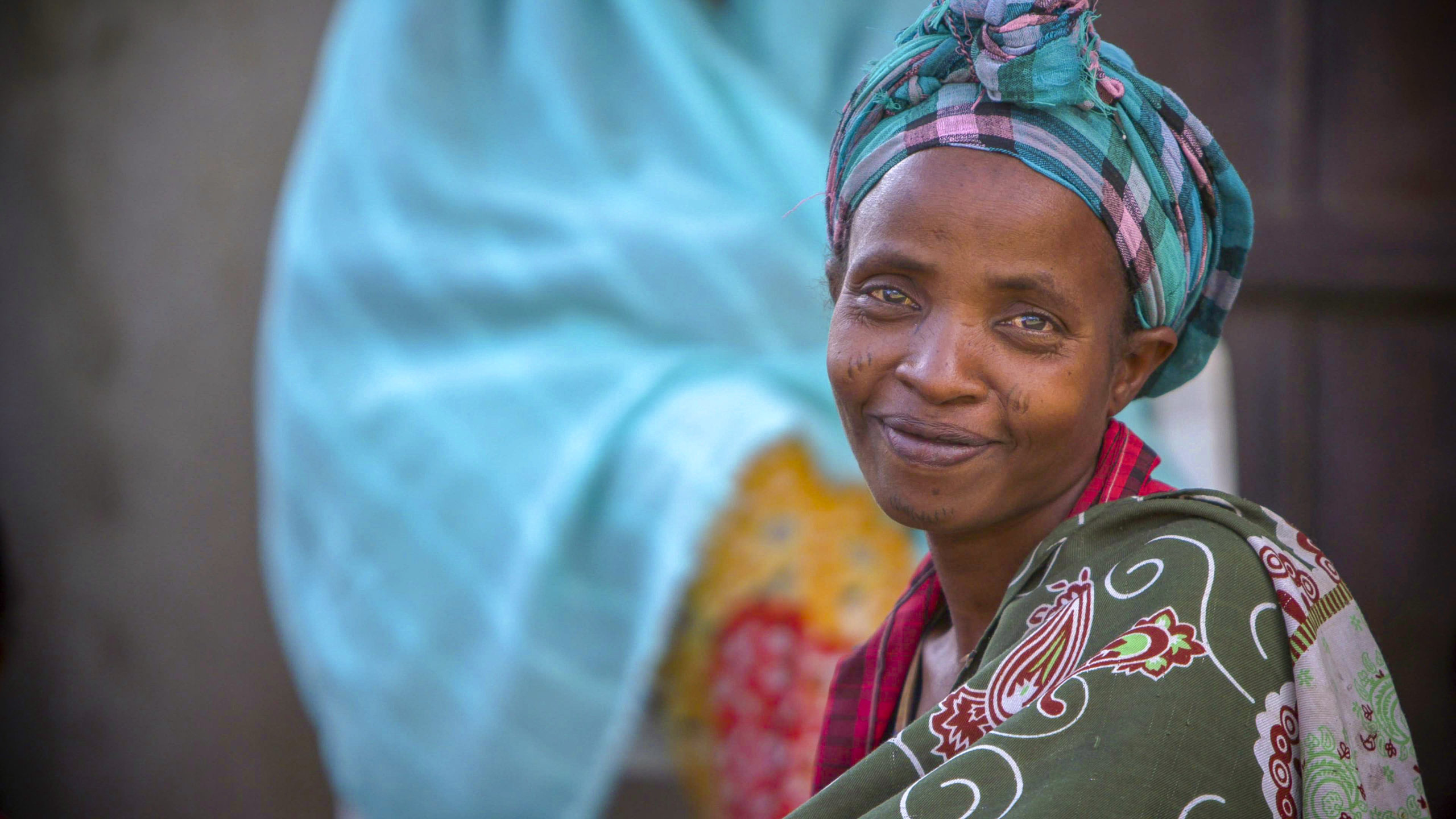
A woman at a World Food Programme health post near Hawassa, Ethiopia.
I saw this in two countries in two hemispheres. I saw it on both my scouting trip and when we returned to film. And I was inspired with each visit—realizing that this is the necessary work that’s going on unseen and unheralded thanks to smart development aid all across the developing world.
In Guatemala, I actually spent a day with Laura Melo, WFP country director there. She’s a brilliant woman, but she’s not the one passing nutrition information directly to mothers in the country. Instead, she coaches local women leaders in health and nutrition so that they, in turn, can coach mothers in their community. It’s a great example of smart work that’s changing lives.
WFP USA: You talked a little bit about women, particularly mothers and child nutrition. But I want to go beyond that a bit and talk about women in general who are living in countries vulnerable to hunger. In these places, women often eat last and least, and yet they are also the backbone of the family and community.
How did meeting women in these communities help your understanding of the important role they play in supporting not only their families, but the prosperity of their entire communities?
Rick Steves: One thing I noticed across the board with all the different NGOs I worked with was just the accepted truth that women are the responsible ones. Women are the ones that are nurturing the kids. Women are the ones that are good with the family budget. Women are the ones that will take care of infrastructure.
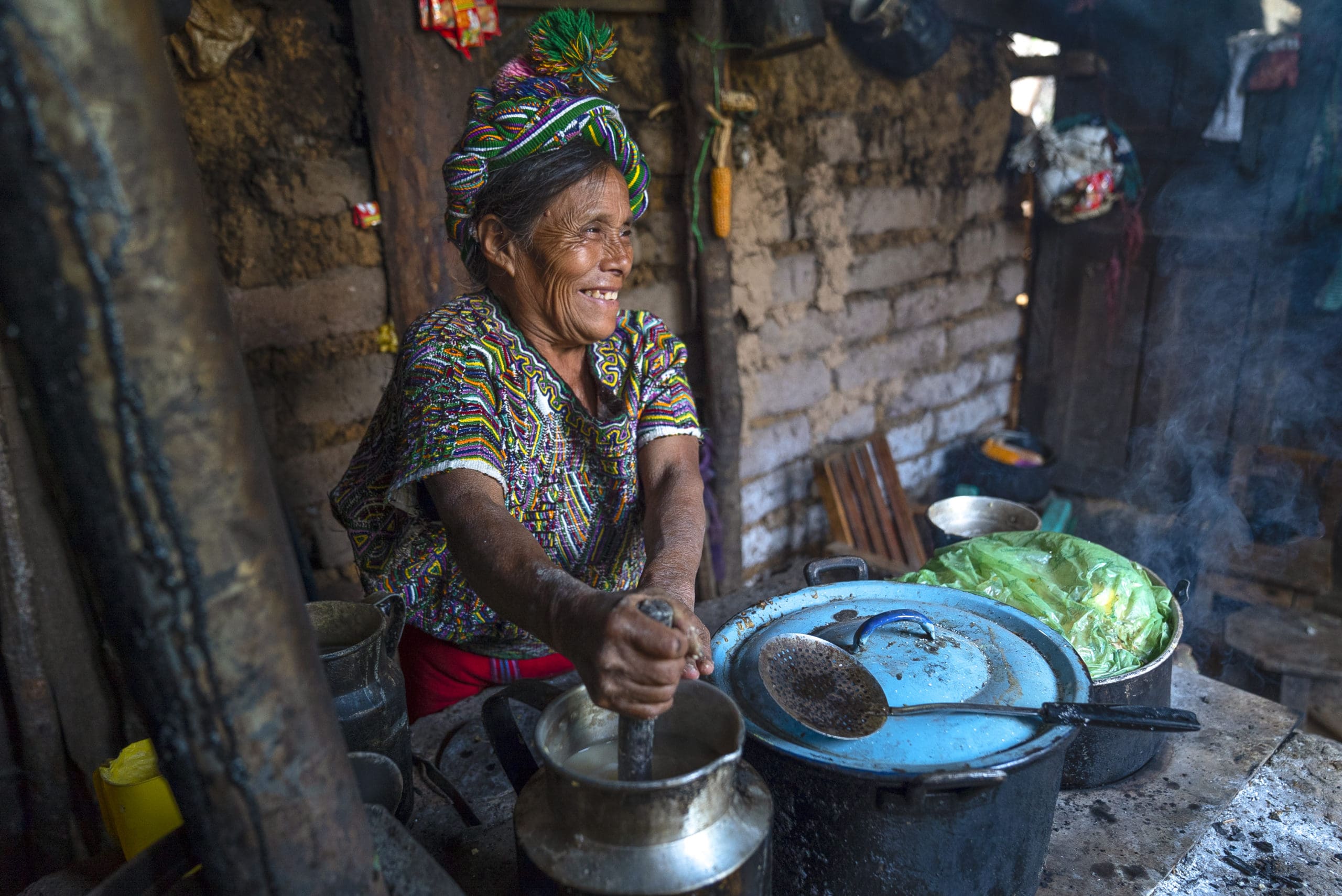
Woman preparing food in Agros International’s El Paraiso community in Nebaj, Guatemala
And these NGOs also showed me smart ways that women are being brought to the table. In one rural community in Ethiopia, community leaders showed me the girls club. It was a building at school that was just for girls and helped ensure girls aren’t being disadvantaged. For instance, in much of the world, when a girl has her period, she can’t go to school. So, for several days a month a girl is missing school and often falling behind. Well, there’s no reason for a girl to miss school because of this and at this girls’ club in Ethiopia, they don’t have to. They have extra counseling and the materials they need to be able to go to school – whether they are having their period or not. Suddenly, the girls are next to the boys every day of the year and getting a more equal education.
It’s proven that when resources are in the hands of women, they are more likely to go to their communities and families. So, it’s critical that women receive an education, marry later and have equal rights. It’s an ongoing struggle, but this girls club gave me hope, and so did seeing the dedication NGOs have to hiring and supporting women.
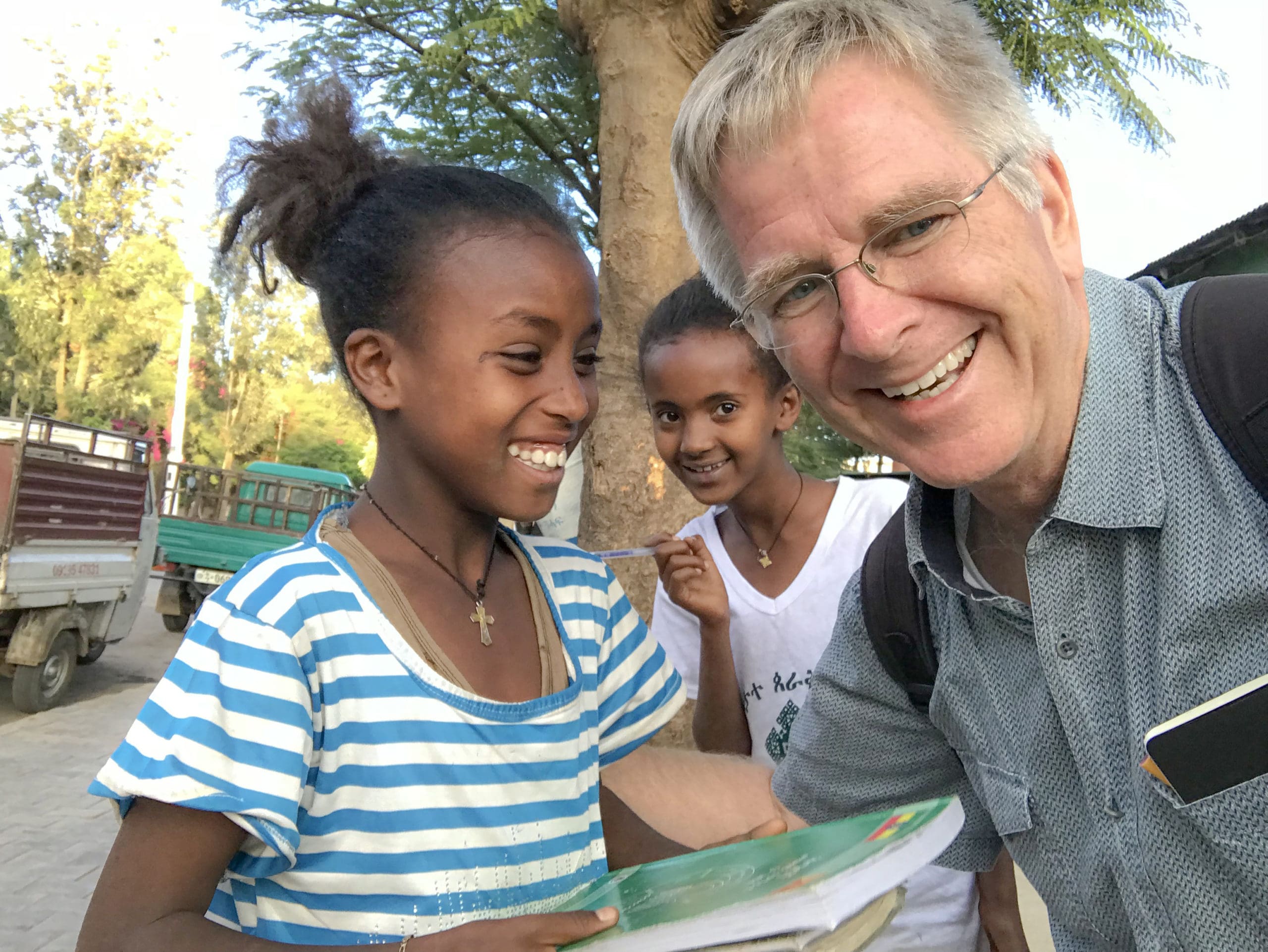
Rick greets new friends in Axum, Ethiopia.
WFP USA: I want to steer the subject just a bit. You know, places like Ethiopia and Guatemala are so far from home for many of us. In your opinion, why should Americans care about hungry people halfway across the globe? What’s something that you would say to an individual here in the U.S. that they could do to help solve hunger?
Rick Steves: I’m a Christian, and like any person who believes in God, I believe we’re all children of the Heavenly Father. If you have that perspective, then suffering across the street and across the sea are exactly the same. So, I recognize that suffering and proximity have nothing to do with each other.
So, there’s the love thy neighbor approach, but I know that for a lot of people, when they step into the voting booth, they aren’t thinking that way, they are thinking “what’s good for me?” That’s a reality, so I think we should step back and answer that question – what is good for us?
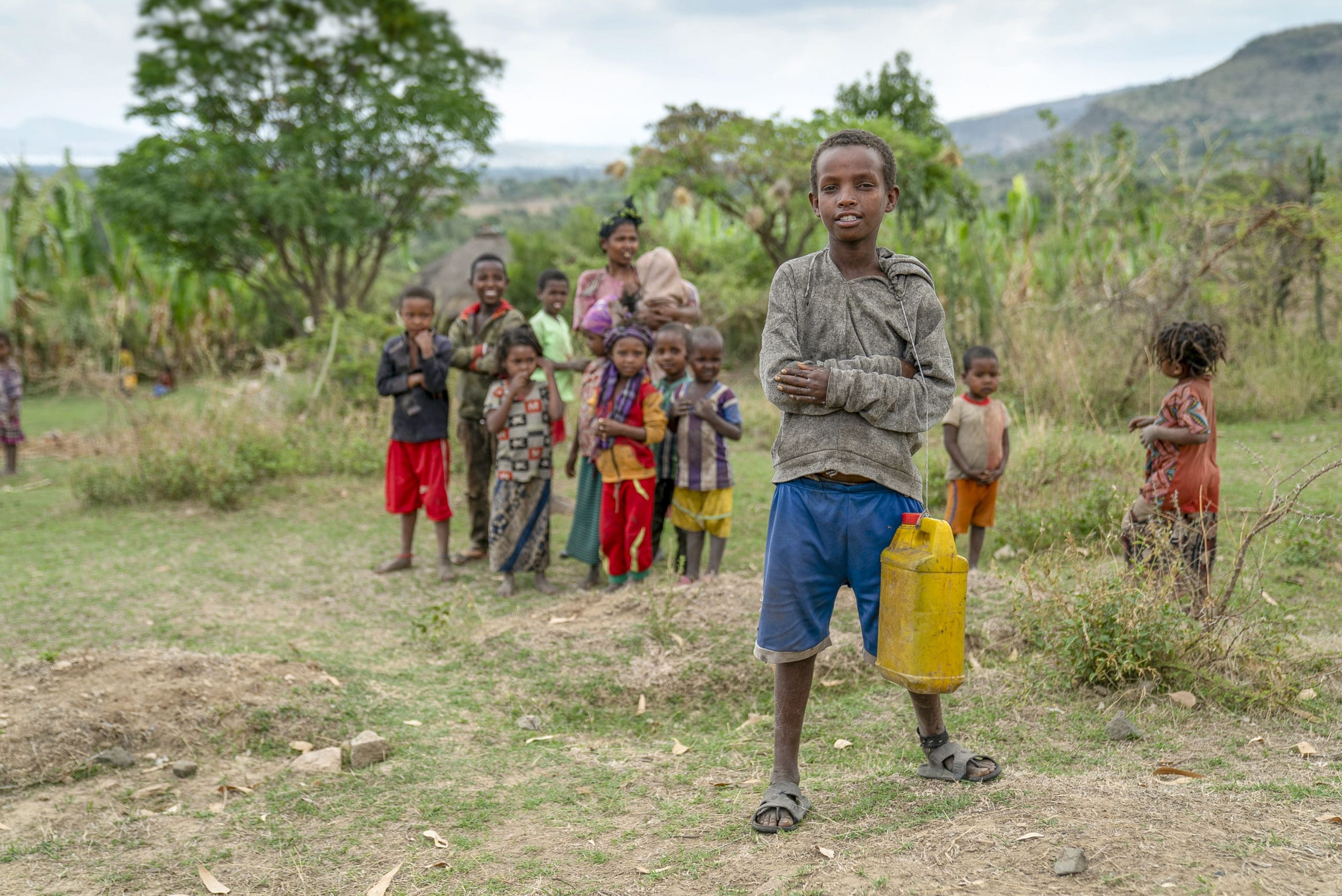
Child making the trek to fill a water bottle near Hawassa, Ethiopia.
What I’ve learned from my travels is that even if you’re only motivated by greed, even if all you care about is what’s good for your family, you still don’t want to be filthy rich in a world that’s desperately poor. It’s not a nice place to raise your kids, even if you can barricade yourself behind designer fortifications and try to ignore it. It’s not a pretty picture. And we can make a huge difference in that when we work together.
I feel very strongly that we shouldn’t give back out of guilt. You know, I’m a privileged person. I work hard. We have a winning system. I get to live a beautiful life. But I’m also aware that there is a huge need out there – and there’s enough resources and wealth in this world to change that. But we need to organize as a society to address this challenge. We organize by supporting NGOs – like WFP – that are making a huge difference.
You can be motivated by love your neighbor or you can be motivated by how you want the world to be safer and more stable. Either way, it’s a practical investment for us to deal with extreme poverty. We can do it. And I’m really excited to be able to contribute a little bit by making a TV special that gives people a glimpse into the smart ways that caring people around the globe are working to make a difference – and shows them that with our support, ending extreme hunger and poverty is not only possible…it’s a good idea.
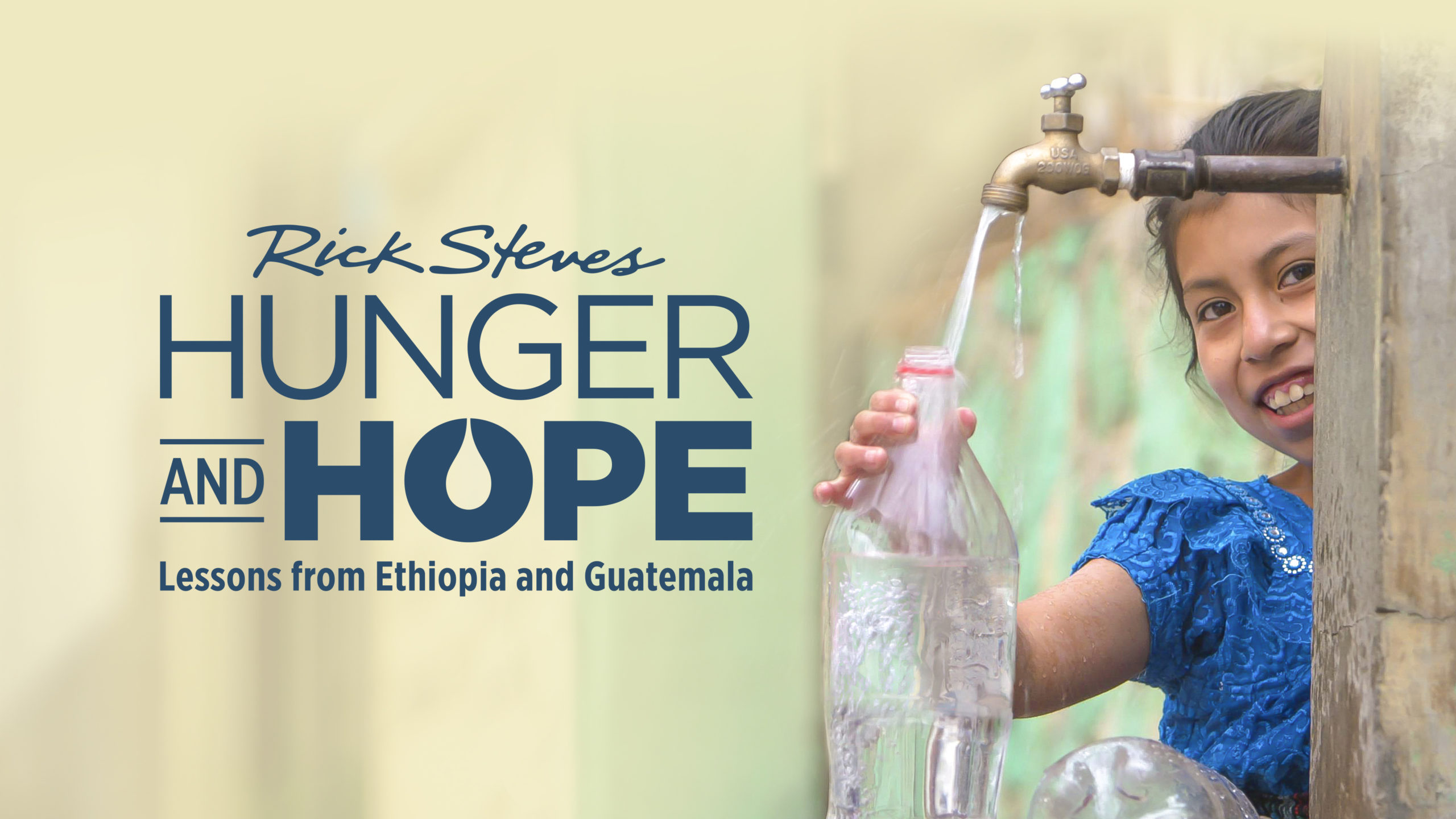
Hunger and Hope: Lessons from Guatemala and Ethiopia is now playing on local public TV stations.
WFP USA: Well, it’s a wonderful documentary and I hope everyone checks it out. I know all of us at WFP USA truly believe that there is hope out there and we can make hunger a thing of the past – and we’re so grateful for everything you’re doing to support this cause.
Thanks again, Rick, for joining us today. Hunger and Hope: Lessons from Ethiopia and Guatemala is now airing on public television. Check your local station for dates and times.




